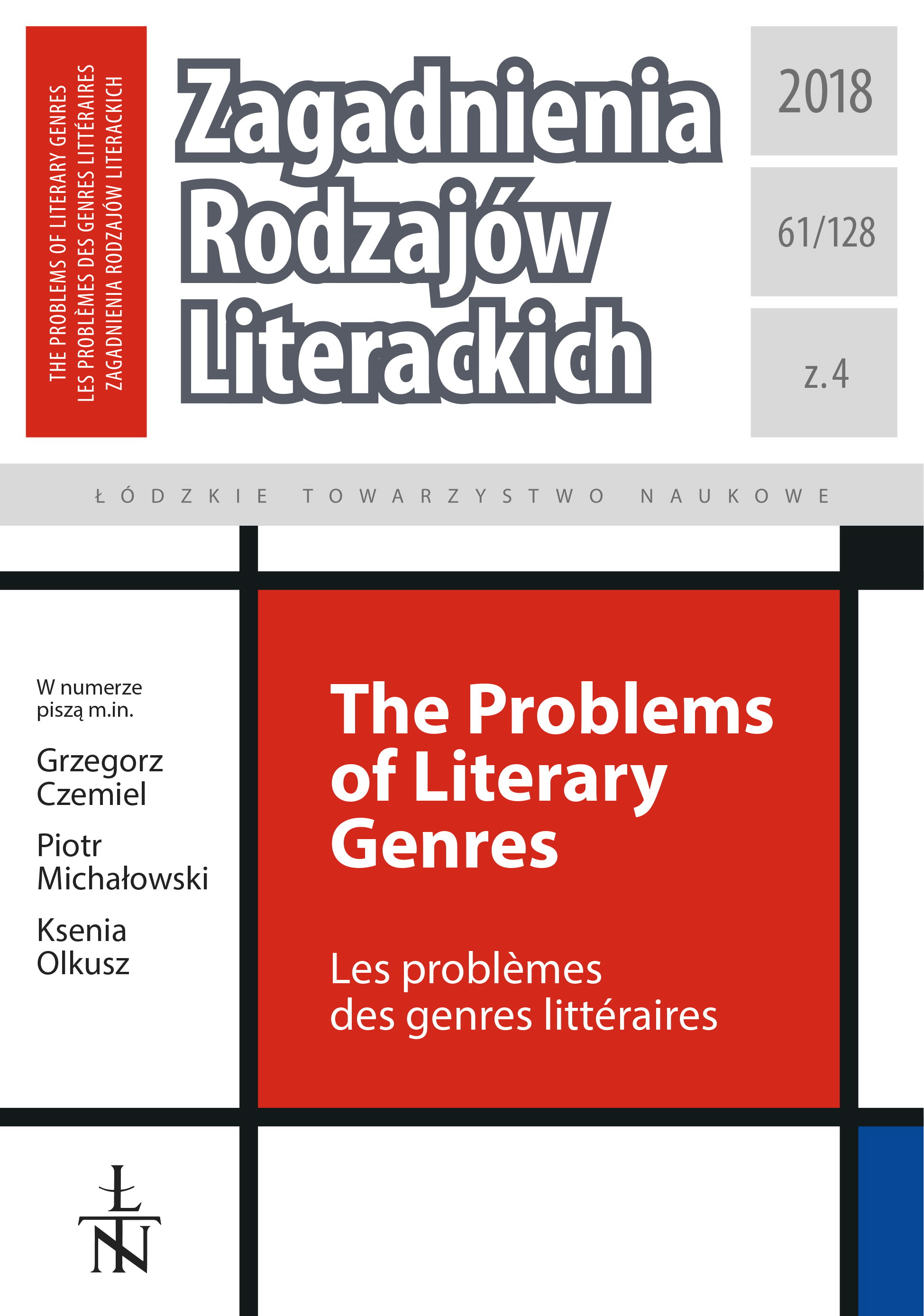Matka odchodzi Tadeusza Różewicza jako asamblaż narracyjny
Mother Departs by Tadeusz Różewicz as narrative Assemblage Art
Author(s): Mikołaj PaczkowskiSubject(s): Studies of Literature
Published by: Łódzkie Towarzystwo Naukowe
Keywords: literary genetics; narrative Assemblage Art; literary genre; narrative identity
Summary/Abstract: This work is an attempt at reading Tadeusz Różewicz’s book entitled Mother Departs from the perspective of literary genetics. A literary genre has been treated as a factor in the interpretation, which could influence the reception of the text. The first part concerns proposals indicated by scholars and critics in the context of this work, such as the Lament, the Treaty of poetry, collage or silva. In the second part the interpretation was carried out taking into account the author's concept of genre, which is narrative Assemblage Art.The central focus here is on the category of time in opera theatre. The structure of time in the opera is understood as consisting of two types of structure: linear-temporal type or circular type. Structured time that is present in all three aspects of the opera (libretto, music score, staging) can simultaneously enter into a network of mutual relations between the fields of art that create an opera work. The phenomenon of the overlapping of the two-time structures, contained in two different aspects of an opera (libretto and score), which leads to the reinforcement or extinction of these time structures is called time interference. This phenomenon comes from research conducted in physics, but is creatively adapted to the range of problems found in opera studies and in drama studies. The constructive interference in the opera strengthens the time structure (linear or circular), while its destructive variety extinguishes one of the structures of time. The phenomenon of interference can influence, e.g. the acceleration of, or for example, the acceleration or deceleration of drama action.
Journal: Zagadnienia Rodzajów Literackich
- Issue Year: 61/2018
- Issue No: 4
- Page Range: 91-104
- Page Count: 14
- Language: Polish

